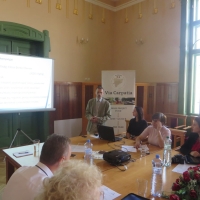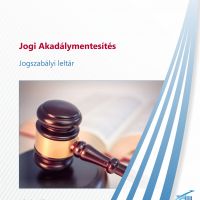The third conference of the Oradea process
Oradea | 06 October 2016
Oradea | 06 October 2016
The Association of French-Hungarian Initiatives (INFH) with the cooperation of the Oradea Metropolitan Area (ZMO) and CESCI has organized an international conference in Oradea for the third time in order to strengthen and improve the Hungarian-Romanian cross-border partnership.
The Oradea Metropolitan Area, CESCI, INFH and the French MOT (Mission Opérationnelle Transfrontalière) launched the Oradea initiative in 2012 with the aims to share the French experiences and to mediate between the Hungarian and Romanian partners. The first conference on the institutionalization of cross-border cooperation was indeed the start of a process, in accordance with the partners’ intentions. The second conference was organized accordingly in 2014 on cross-border health care services, and in 2016 on short food supply chains and local products.
The conference was held in the renovated building complex of the Fortress of Oradea this time. Organizers grouped the presentations around three topics. The first panel was about short food supply chains as instruments of the new paradigm of rural development. Daniel Wathelet, an expert on the Eastern European region, president of the International Urban Food Network (IUFN), highlighted in his presentation the importance of short food supply chains starting from the food challenges humanity is facing. He explained that not only the high quality supply of the population can be ensured through these, but also the pollution caused by food supply can be decreased (food industry is responsible for almost half of the pollutant gases). The involvement of local producers strengthens local democracy and ownership approach at the same time. IUFN has developed a methodology in order to disseminate the model, and operates as an intermediary interface between the parties concerned.
Cristian Buzlea, executive director of the Hajdú-Bihar County Development Agency and Orsolya Tószegi, referent for the short food supply chains of the Prime Minister’s Office European Agricultural Fund for Rural Development (EAFRD) introduced the Romanian and Hungarian policy background. As it turned out, the support system shows many similarities in the two countries. On the Romanian side, the local market covers a 50 km radius agglomeration area, however, according to Hungarian legislation; local producers may sell their products in the county affected by production, in Budapest, and within the 40 km radius of the production site. Anita Hosoff, as a representative of the National Food Chain Safety Office, completed the presentations of the first block with information regarding hygiene standards. She also talked about the kind of provisions that prevent local products to appear in cross-border regions.
Presenters of the second panel introduced models regarding short food supply chains. Mihaela Veţan, director of the Association for Supporting Peasant Farming (Timișoara) talked about the ASAT-model introduced following the French example. This means that families sign a contract with producers for the annual quota. Ten such partnerships operate in Romania currently, in six cities. Andrea Szabadkai, president of the National Association of Interest Representations for Small-scale producers and service providers, presented their efforts for local small-scale producers over the past 8 years. The association has a major role in the creation of appropriate legal regulations in Hungary. She mentioned the social farm from among the Hungarian models, and the producer merger of interests about to be launched following the French example.
The last presentation of the panel was held by Frédéric Perrin, director of the French Institute for Pure Vegetable Oils. The model developed by them answers three challenges at the same time: food and energetic challenges of the produced vegetable oil, and the challenges affecting the development of the region. Food, animal feed and energy resources are all made from agricultural raw materials.
In the last panel of the conference, specific regional cooperation introduced themselves. Gabriella Lupse, leader of the Hungarian Cross-Border Local Action Group of Bihar County, was the first one to talk about their past and future developments affecting the region with a population of 90 thousand. Tibor Szabó, leader of the work organization of the Zala Thermal Valley Association presented the latest results of the action group in partnership with the French, which will be realized within the framework of the open gate movement. Károly Batiz, the communication director of the association of “Kamra-Túra Homokháti Gazdák”, talked about the courtyard program launched in 2004 under extremely harsh climatic conditions, which unites 120 farmers today. The last presentation of the conference was held by Dorin Popa, president of the Crişana Research and Sales Association of Food Products, about the professional help they provide for farmers of Bihar County to access the market.
The conference was moderated by Katalin Kujáni, agricultural-innovation referent of the Ministry of Agriculture, and the participants were welcomed by Florica Cherecheş, Member of Parliament and dedicated member of the local “Kiskosár Bevásárló Közösség”, Florin Birta, deputy mayor of Oradea, and Benoit Bevouset, director of the French Institute in Cluj-Napoca.
Similarly to previous conferences, this year’s event was not only important from the perspective of exchanging professional experiences, but from the perspective of potential cooperation and projects inherent in the establishment of personal relationships. The objective of the process of Oradea is that more and more sectors and their actors find each other in Hungarian-Romanian relations, and start cooperation building on French experiences. Experts involved in renewable energy can be the next to do this.

 Legislative inventory (Legal Accessibility: First milestone) (HU)
Legislative inventory (Legal Accessibility: First milestone) (HU)